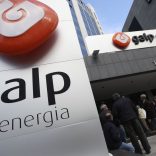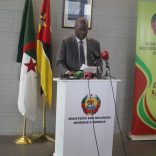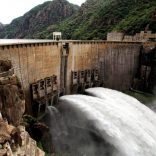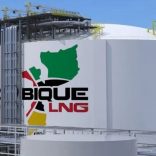Mozambique: AT denies tax dispute with Galp
Mozambique: Government confident in no more fuel price hikes

Image: Lusa
Mozambique’s Minister of Economy and Finance yesterday expressed confidence that it will not be necessary to raise fuel prices again after Monday’s increase, while noting that everything depends on the global situation.
“We believe that the price, despite being high, has stabilised. Therefore, there will be no reasons for additional increments, but this depends on the evolution of the geopolitical situation in the world, which has an influence on the price of petroleum products,” Max Tonela told Lusa on the sidelines of the African Development Bank’s annual meetings in Accra.
Minister Tonela stressed that the general level of fuel prices in Mozambique “is the lowest in the entire southern region of Africa, that is, compared to neighbouring countries”.
The Energy Regulatory Authority (ARENE) of Mozambique on Monday announced the readjustment of fuel prices in the country, with an increase in all products from Tuesday.
President of ARENE, Paulo António da Graça, said on the occasion that the Mozambican government had sought to avoid a readjustment that would put pressure on consumers by temporarily removing the tax on fuel.
Today, Minister Tonela explained that, since liquid fuels are fully imported, as Mozambique is not yet in a position to produce them itself, the country has to buy at international prices, which are inflated due to the war between Russia and Ukraine and moreover depend on exchange rates.
“What the government is looking for is to find internal measures on the variables over which it has control to mitigate this increase. But we have seen an increase in such a way that after a certain point, the government had no way of doing this,” he recalled.
The government then changed the cost structure of the components associated with logistics and also cut some margins in the price structure to minimise the impact of this increase, an exercise that was carried out both in the first fuel increase this year, as in the increase that took place this Monday, Tonela explained.
“There are countries that have structured subsidies, especially producing countries, but that do not reflect the supply structure. We have to assess whether we subsidise the economy as a whole or if we find mechanisms that also take into account the restrictions that the state has, resulting from its financial capacity, also prioritising key and social sectors, education, health, etc. Therefore, this has been the government’s strategy,” Tonela said.
Petroleum products for sale in Mozambique are imported by sea by a single public entity, IMOPETRO, which is owned by the petroleum products distributors operating in the country.
This week’s price increase came a month after the Mozambican Association of Fuel Companies (AMEPETROLl) asked for a price readjustment, warning that the state’s debts to gas stations could paralyse distribution, at a time when prices on the international market are soaring as a result of the Russian invasion of Ukraine.
According to information provided by AMEPETROL in April, the Mozambican government owes gas stations over US$110 million (about €102 million).












Leave a Reply
Be the First to Comment!
You must be logged in to post a comment.
You must be logged in to post a comment.